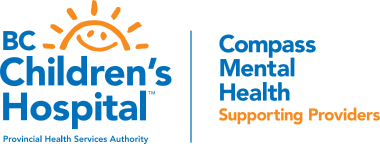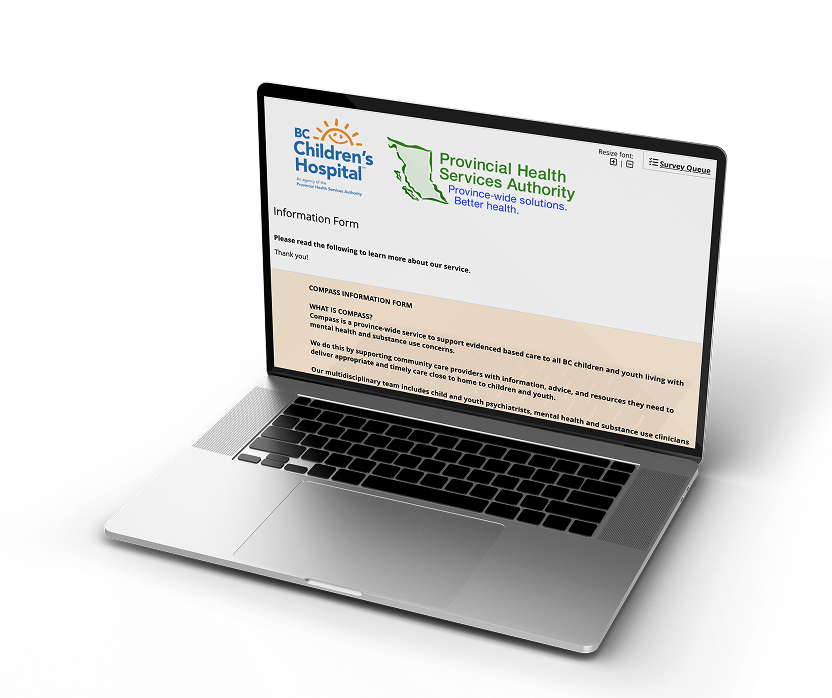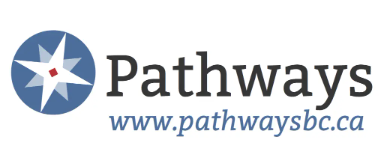
Call 1-855-702-7272
Compass is a province-wide service to improve access to evidence-based care for all children and youth living with mental health and substance use concerns, throughout BC and the Yukon.

A team of mental health and substance use professionals is only a call away.

Provider needs support in treating patient with mental health or susbtance use concerns

Consultation is conducted between the community provider and Compass team

For select rural communities, after indirect consultation(s), a DA may be discussed on a case by case basis

Providers call 1-855-702-7272 without patients/caregivers present, Monday-Friday 9am-5pm.
Call 1-855-702-7272
First time callers will be registered in the database system.

Initial consultation calls are answered by an experienced child & youth mental health provider. Initial consultations can take anywhere from a few minutes to longer, depending on the complexity of the case.

Mental health and substance use is complex. If additional expertise and consultation is required, follow up consultations can range from 15 minutes to an hour.

Providers are sent a summary letter with key recommendations from the consultation.

Providers call 1-855-702-7272 without patients/caregivers present, Monday-Friday 9am-5pm.
Call 1-855-702-7272
First time callers will be registered in the database system.

Initial consultation calls are answered by an experienced child & youth mental health provider. Initial consultations can take anywhere from a few minutes to longer, depending on the complexity of the case.

Mental health and substance use is complex. If additional expertise and consultation is required, follow up consultations can range from 15 minutes to an hour.

Providers are sent a summary letter with key recommendations from the consultation.

BCCH and UBC are studying how Asian Canadian and White Canadian families make ADHD treatment decisions. Eligible families have a recent ADHD assessment and a child aged 6–18. Physicians receive comorbidity insights and study findings.

November 20, 2025

BCCH-UBC are investigating how Asian Canadian and White Canadian families make decisions about what treatment to pursue for their children and youth with ADHD. The hope is to help reduce the mental health service gap for Asian Canadian families. Each family will complete measures at 3 time points over a year.
Families are eligible for this study if their child/youth:
Referring Physicians Receive:
Find out more about the study and find study resources to share with families here: https://bcchr.ca/adhd-study/study-info-physicians-clinicians
Contact the team for more information:

PsychED4Peds is a child mental health podcast for pediatric clinicians, featuring Dr. Elise Fallucco and other experts sharing practical tools and strategies to support kids and teens.

November 20, 2025

PsychED4Peds is the child mental health podcast designed for pediatric clinicians - helping YOU help KIDS!
Dr. Elise Fallucco, M.D. joins other experts in the fields of child psychiatry, psychology, and pediatrics to share practical, concrete tools, tips, resources and strategies that can help pediatric clinicians take care of kids and teens.

BC Children’s Hospital and Shared Care have launched a new point-of-care pathway to support providers caring for youth with eating disorders, now available on Pathways BC. Clinicians are invited to test it and share feedback.

November 20, 2025

As a result of COVID-19 pandemic impacts, the rates of hospitalization for children and youth (aged 10-17) with an eating disorder in Canada were 1.6 times higher in 2020 when compared to 2019. BC Children’s Hospital, in association with Shared Care (a joint collaborative committee representing a partnership between Doctors of BC and the Government of BC), is pleased to announce the launch of the Clinical Point-of-Care Pathway for Children/Youth with Possible or Confirmed Eating Disorders. This pathway tool is aimed at supporting BC primary care and specialist physicians, and nurse practitioners, who provide care to children and youth, who may present with possible or confirmed eating disorders.
The pathway tool provides point-of-care guidance and care navigation for a patient population who providers may not deliver care to on a regular basis, including:
The new pathway tool is available on the Pathways BC Website, and officially launched on Friday, March 1, 2024. Clinicians will need an account to login to the Pathways BC website, which can be requested free of charge.
In conjunction with this launch, BC Children’s Hospital is seeking feedback from providers who are interested in testing the pathway in their clinical practice, and in providing feedback on its functionality and usefulness in clinical care. All participants will receive honoraria for their involvement in improving this tool. Please find further information here: surveys.reichertandassociates.ca/f/s.aspx?s=FA9EBF09-B89E-4C72-A229-FE2F6D211225
This is one of a number of tools being developed by BC Children’s Hospital to enhance care for children and youth with eating disorders from across BC. We look forward to sharing further updates with you in the months ahead.